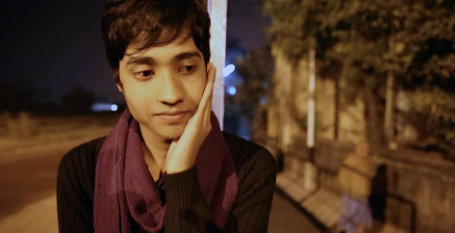Gays and lesbians in India are being forced to live in fear of prosecution as police set up sting operations by luring them for dates using online dating sites, reports Newsweek.
Many gay men and women also hide their sexual orientation “fearing rejection, discrimination and violence,” said the popular American weekly news magazine that provides in-depth analysis, news and opinion about international issues.
The report quoted a 20-year-old gay man from the eastern Indian city of Kolkata as recounting how his parents subjected him to medical treatment after he tried to come out.
“Like many Indians, they thought he had a mental disorder,” said the report. He escaped further consequences after telling his parents he had been cured.
After decades of discrimination, an Indian high court in 2009 decriminalized same-sex relations and gave the gay community broad protections and rights but the Indian Supreme Court in December 2013 reinstated the law and made those having same-sex relations criminals.
That interim period meant gay people could live without fear of fear of discrimination or arrest, move freely, report hate crimes and date whomever. Many gay people even decided to come out without fear of repercussions.
“Today, however, gays and lesbians in India have once again been forced into the shadows... Now, many gays and lesbians in India live in fear of prosecution,” said Newsweek.
It also cited how in October police arrested a 32-year-old engineer in Bangalore, southern India, after his wife used a hidden camera to catch him having sex with a man. The man if convicted could spend the rest of his life in jail.
“Elsewhere in India, a number of cases against gay men are moving through the courts as a police office had set up a string by luring them for dates using an online dating site,” the Newsweek report said.
Indian gay rights activists are waging a legal battle to do away with the colonial-era “Section 377” law that the Indian Supreme Court reinstated to describe same-sex relations as “unnatural” and punishable with life imprisonment.
Activists maintain that the law besides being discriminatory leaves the gay community open to blackmail, harassment and persecution by authorities as well as criminals.
“Despite the hard work of gay rights activists (they) are still fighting a losing battle,” the Newsweek report said. “India’s legal system is notoriously slow, and the appeals process could take years. Thus far, their early efforts haven’t been successful,” the report said.
Politically too, nothing much is to change, it pointed out. In 2014 Prime Minister Narendra Modi rode a wave of Hindu nationalism into office but gay rights was never on his agenda. “That’s unlikely to change… His conservative base cares much more about free markets and Hindu pride than LGBT rights, and wading into the debate offers few political benefits,” it said.
Gays and lesbians in India are being forced to live in fear of prosecution as police set up sting operations by luring them for dates using online dating sites, reports Newsweek.
Many gay men and women also hide their sexual orientation “fearing rejection, discrimination and violence,” said the popular American weekly news magazine that provides in-depth analysis, news and opinion about international issues.
The report quoted a 20-year-old gay man from the eastern Indian city of Kolkata as recounting how his parents subjected him to medical treatment after he tried to come out.
“Like many Indians, they thought he had a mental disorder,” said the report. He escaped further consequences after telling his parents he had been cured.
After decades of discrimination, an Indian high court in 2009 decriminalized same-sex relations and gave the gay community broad protections and rights but the Indian Supreme Court in December 2013 reinstated the law and made those having same-sex relations criminals.
That interim period meant gay people could live without fear of fear of discrimination or arrest, move freely, report hate crimes and date whomever. Many gay people even decided to come out without fear of repercussions.
“Today, however, gays and lesbians in India have once again been forced into the shadows... Now, many gays and lesbians in India live in fear of prosecution,” said Newsweek.
It also cited how in October police arrested a 32-year-old engineer in Bangalore, southern India, after his wife used a hidden camera to catch him having sex with a man. The man if convicted could spend the rest of his life in jail.
“Elsewhere in India, a number of cases against gay men are moving through the courts as a police office had set up a string by luring them for dates using an online dating site,” the Newsweek report said.
Indian gay rights activists are waging a legal battle to do away with the colonial-era “Section 377” law that the Indian Supreme Court reinstated to describe same-sex relations as “unnatural” and punishable with life imprisonment.
Activists maintain that the law besides being discriminatory leaves the gay community open to blackmail, harassment and persecution by authorities as well as criminals.
“Despite the hard work of gay rights activists (they) are still fighting a losing battle,” the Newsweek report said. “India’s legal system is notoriously slow, and the appeals process could take years. Thus far, their early efforts haven’t been successful,” the report said.
Politically too, nothing much is to change, it pointed out. In 2014 Prime Minister Narendra Modi rode a wave of Hindu nationalism into office but gay rights was never on his agenda. “That’s unlikely to change… His conservative base cares much more about free markets and Hindu pride than LGBT rights, and wading into the debate offers few political benefits,” it said.

